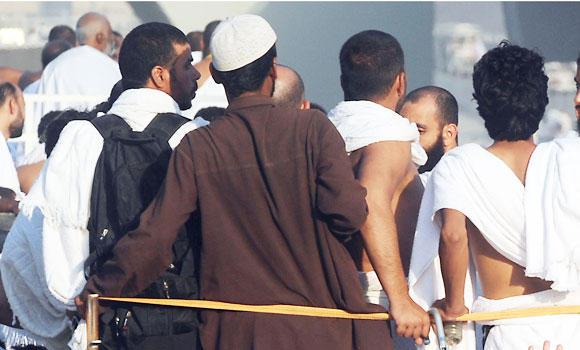Dubai, Jan 4: Three UAE airlines have made it to lists of the safest carriers in 2020, reinforcing the value these companies provide passengers in the increasingly competitive aviation scene.
Abu Dhabi's Etihad Airways and Dubai's Emirates are in the list of the top 20 safest airlines, while Sharjah-based Air Arabia is in the list of the top 10 low-cost carriers, safety and product rating website AirlineRatings.com reported on Thursday.
It named Qantas as the safest airline for 2020 out of the 405 carriers it monitors.
The top 20, in order, are Qantas, Air New Zealand, EVA Air, Etihad Airways, Singapore Airlines, Emirates, Alaska Airlines, Qatar Airways, Cathay Pacific Airways, Virgin Australia, Hawaiian Airlines, Virgin Atlantic Airlines, TAP Portugal, SAS, Royal Jordanian, Swiss, Finnair, Lufthansa, Aer Lingus and KLM.
"These airlines are clear standouts in the airline industry and are at the forefront of safety," said AirlineRatings.com editor-in-chief Geoffrey Thomas.
"For instance, Australia's Qantas has been recognised by the British Advertising Standards Association in a test case in 2008 as the world's most experienced airline."
"Qantas has been the lead airline in virtually every major operational safety advancement over the past 60 years and has not had a fatality in the pure-jet era," said Thomas.
AirlineRatings.com editors also identified their top 10 safest low-cost airlines; they are, in alphabetical order, Air Arabia, Flybe, Frontier, HK Express, IndiGo, Jetblue, Volaris, Vueling, Westjet and Wizz.
Saj Ahmad, chief analyst at StrategicAero Research in London, says that it isn't a surprise that UAE carriers are on those lists.
"UAE airlines almost always feature in the top rankings for safety because they value the equipment that they fly their passengers on each and every day," he told Khaleej Times on Thursday.
"All airlines do; but for the UAE, where airlines have expanded rapidly in the last couple of decades, it's an amazing feat that they rank so highly while inducting so many new aeroplanes."
There's little benefit to adding luxurious cabins if maintenance, security and safety protocols as well as routine engineering schedules are not adhered to, he stressed.
"And with the UAE itself sporting MRO activities as well as through companies like Strata, which supply components to Airbus and Boeing directly, airlines here have harnessed that tech-change to ensure that their fleets have the highest redundancy and safety checks at every possible chance," Ahmad added. "That translates into passenger confidence - and we can see the brand and loyalty strength across Emirates, flydubai, Air Arabia and Etihad; it's no surprise that each year, they all fly more and more passengers across their network."
In making its selections, AirlineRatings.com editors and its industry advisors take into account numerous critical factors that include: Audits from aviation's governing bodies and lead associations, government audits, airline's crash and serious incident record, fleet age, financial position and pilot training and culture.
"All airlines have incidents every day and many are aircraft or engine manufacture issues instead of airline operational problems. And it is the way the flight crew handles incidents that determines a good airline from an unsafe one. So just lumping all incidents together is very misleading," said Thomas.







Comments
i was in that case 2014 my finger print is taken at meeqat i did not go for hajj and i came back.before going back to my country i visited to the passport office and said that i have the issue they said no prob you can go.after 2 years now i came here and while entry there is no issue but when i am going back to country stopped me for immigration. i visited all of the pass[port offices and also in the airport they said no issue but while boarding issue raised.my request is for the saudi government that if some one accept his mistake and he needs to clear it legally so it should be given..
some body can help me how to remove haj fingers my iqama is expired and not renewed becoze of haj fingers
some body can help me i will pay as he want but just i need help some body know any person who can remove haj finger
Add new comment